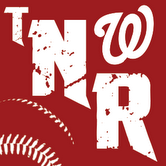There have been quite a few articles on why the Nats should or should sign Prince Fielder. Buster Olney has a rather long and detailed opinion article (ESPN Insider) which brings up some really good points. I’m not gonna go over most of it, but a few highlights are:
- Between the Prince and Gio additions, they’d have a very good rotation and a top lineup
- Ryan Zimmerman wouldn’t be able to move to first, and the Nats brass may envision him there
- Fielder is not a good, um, fielder, and won’t be getting better as he ages
Those are important things to keep in mind, but the best article I’ve seen recently on the subject is on Fangraphs, written by Steve Slowinski (and it’s free!). He starts by talking about the Nationals current capability, saying that without Fielder, they “have the potential to be a mid-80s win team.” With the maturation of younger players and the addition of Gonzalez, it shouldn’t be hard to envision 4 or 5 more wins. He then did some quick math and saw that if the Nats signed Fielder they’d turn into a 91-ish win team, but he believes that the optimistic individual projections he used are a little unrealistic, and a win total in the high-80s is much more likely. Still, this could get you into the playoffs… this isn’t stuff we haven’t heard in the last few weeks. But that’s not what interested me about his article.
Rather, it was his analysis of what they might miss with this deal.
It is similar to what I’ve been saying over the last few months with Fielder – that it doesn’t necessarily make sense with their roster. If you sign Fielder, then not only do you make LaRoche “obsolete” (which I’m fine with), but thanks to Bryce Harper soon to be taking up a corner spot, “by signing Fielder, the Nationals may be making not one, but two players on their roster obsolete.”
And he says the Nats may be better off doing what I’ve said – sign a CF after the end of next season. He calculated WAR of the combinations of Prince and current CF Bernadina, coming up with 6-8 WAR. Whereas the combination of Morse and one of the FA CFs next year could get them 5.5-7.5 WAR at a much cheaper price. And then you have someone playing CF that you actually have faith can play.
Those WAR calculations make you think twice about spending $20+ a year on a player like Prince. Because, as everyone has noted, but the time the contract ends, he may not be able to play DH, let alone 1B. As an aside (and I won’t claim to be the first to have said this) – there was a player in the early 90s who wasn’t as good as Prince, but had a similar body type and did lead the league in HRs two years in a row. He was done being a good player after the age of 32 and his last year was at age 34. His name, of course, was Cecil Fielder.
He also notes that, hey, if you want to sign Fielder AND a CF next year, then that makes the most sense, you might be able to get something in return for Morse. But if you think they’re gonna spend money on Fielder, Werth and then a CF, and then go ahead and re-sign Zimmerman, you are probably not the person managing the Nationals’ budget.
He comes to the conclusion that I have before, and it’s so in line with what I’ve thought about this all along that I’m just going to close by quoting his ending
That’s not to say the Nationals shouldn’t sign Fielder — merely that these are the sort of variables that they need to consider in making their decision. I don’t think I’d do it if I were them, but only their front office knows how much budget space they anticipate having in the future. Either way, the Nationals should be an exciting, surprising team in 2012. For the first time in a while, their franchise is looking headed in a very positive direction.
